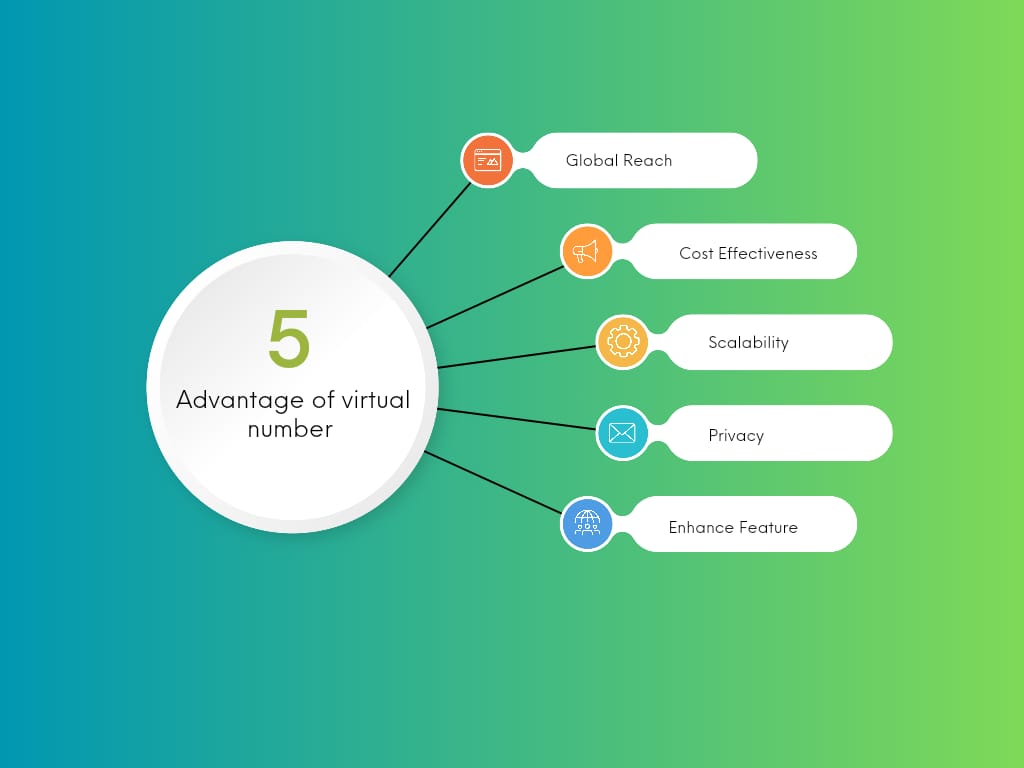What is a Virtual Number?
A virtual number, also known as a DID (Direct Inward Dialing) number, is a telephone number that is not tied to a specific phone line or device. Instead, it uses internet-based telecommunication systems to route calls, allowing users to answer or make calls from anywhere in the world.
How Does a Virtual Number Work?
Virtual numbers operate via VoIP (Voice over Internet Protocol) technology. Here’s a step-by-step breakdown:
- Number Assignment:
A virtual number is assigned through a cloud-based service provider. These providers maintain a database of numbers from various countries and regions.
- Call Routing:
When someone dials your virtual number, the call is routed over the internet instead of traditional PSTN (Public Switched Telephone Network).
The routing system directs the call to a predetermined device or application, such as your smartphone, laptop, or VoIP desk phone.
- Flexibility in Destination:
Users can configure the destination of calls to suit their needs, whether it’s to a mobile device, a landline, or even an email inbox for voicemails.
- Advanced Features:
Virtual numbers support features like call forwarding, voicemail transcription, IVR (Interactive Voice Response), and SMS reception, making them versatile for various needs.
Advantages of Using Virtual Numbers
- Global Reach:
Businesses can establish a local presence in multiple countries without needing a physical office.
- Cost-Effectiveness:
Calls via virtual numbers are often cheaper than traditional international calls, saving significant communication costs.
- Scalability:
As businesses grow, virtual numbers can be easily scaled to add new lines or features without infrastructure changes.
- Privacy:
Virtual numbers provide an additional layer of privacy, keeping personal numbers confidential while communicating with clients.
- Enhanced Features:
With call analytics, IVR systems, and recording options, virtual numbers empower businesses to optimize their customer service strategies.

Key Applications of Virtual Numbers
- Customer Support:
Businesses use virtual numbers to provide localized customer support for global audiences.
- Remote Work:
Virtual teams use them to maintain seamless communication across time zones.
- Marketing Campaigns:
Unique virtual numbers for different campaigns help track performance effectively.
- E-commerce and Delivery Services:
Virtual numbers ensure smooth coordination between businesses and customers.
- Personal Use:
Individuals use virtual numbers to maintain privacy while engaging in online activities like classified ads or dating.
How to Get a Virtual Number
- Choose a Provider:
Select a reliable virtual number provider like Alphatalk ,Twilio, Grasshopper, or Google Voice.
- Pick Your Plan:
Based on your requirements, choose a subscription plan that suits your needs. Alphatalk offers various plan which are helpful to their customer.
- Set Up Forwarding Rules:
Configure the virtual number to forward calls to your preferred device or application.
- Customize Features:
Enable additional features like voicemail, call recording, or IVR for a personalized experience.
FAQs About Virtual Numbers
Yes, virtual numbers are highly secure, especially when offered by reputable providers with encrypted communication channels.
Most virtual numbers support SMS reception, making them suitable for verification codes or client communication.
The cost varies depending on the provider, features, and region. Basic plans start as low as $5 per month.

